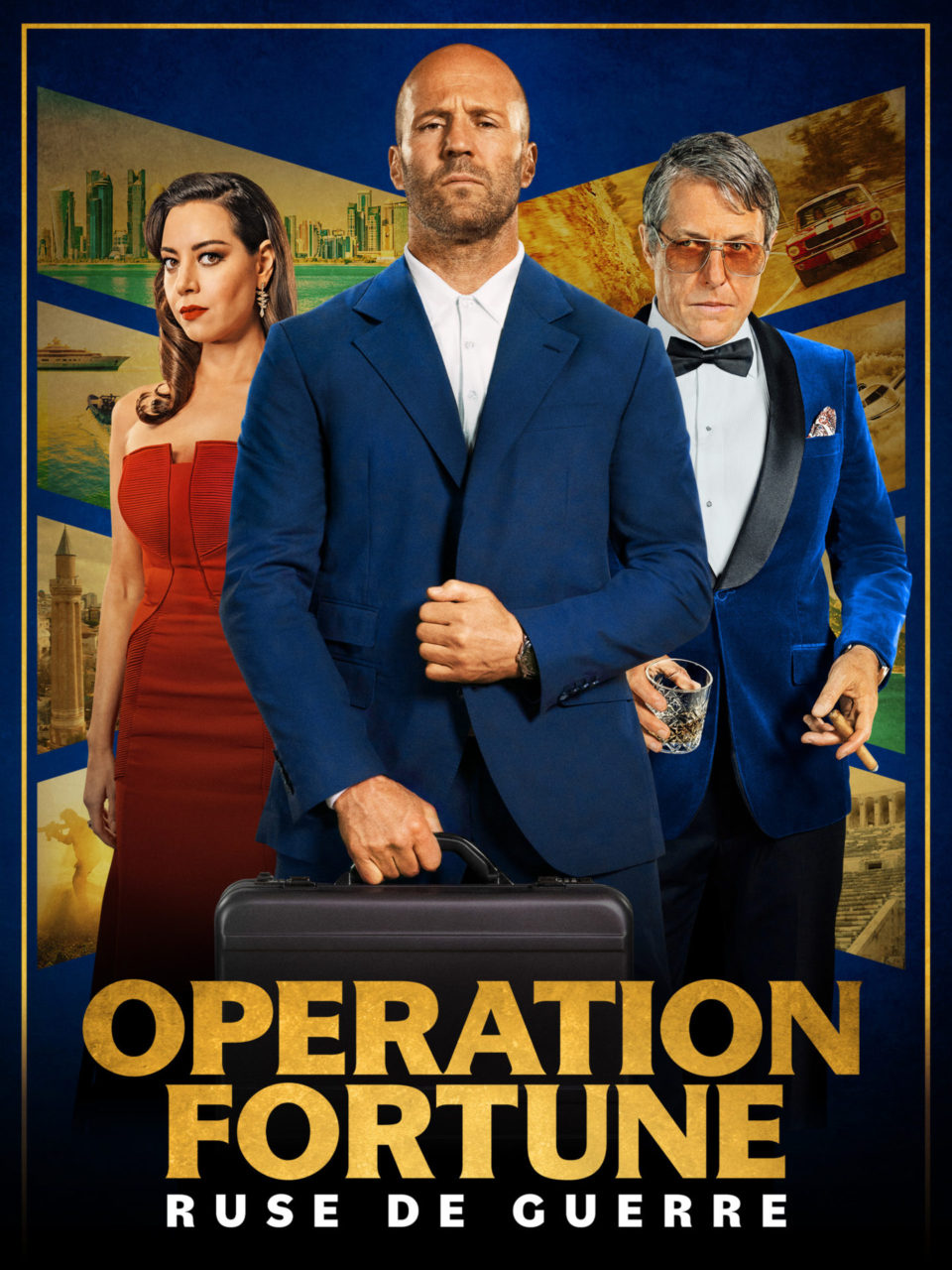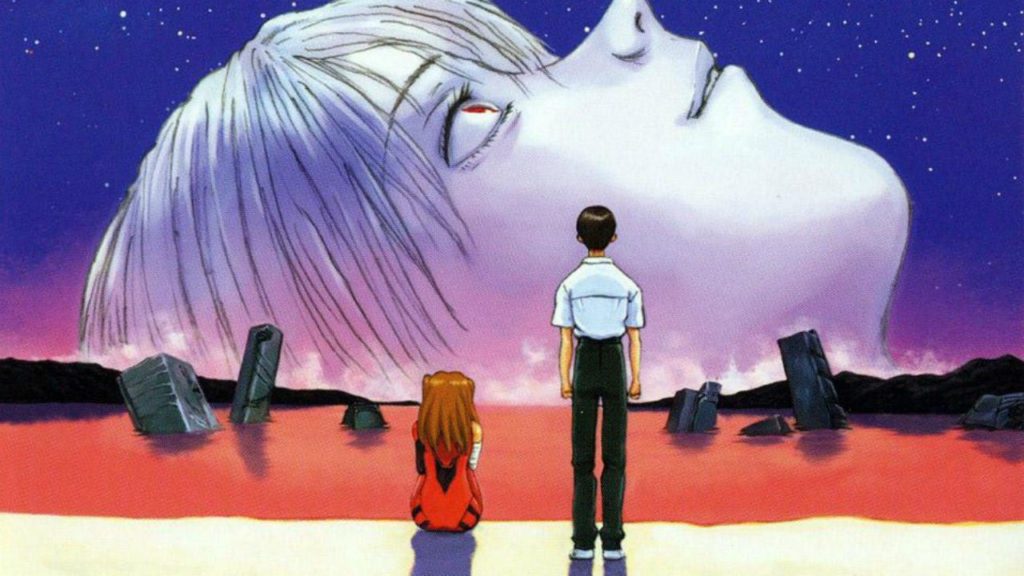
Neon Genesis: The End Of Evangelion - Hideaki Anno & Kazuya Tsurumaki
This film is a remake – reimagining – of the final two episodes of the TV Series Neon Genesis: Evangelion. As you can see from my review of the show those two episodes were a huge let down after what was a pretty spectacular series up to that point.
This film is really hard to look at without the TV show but I think we have to to be able to judge them separately on their own merits. While the last two episodes of the TV show are almost entirely internal – we don’t get to see what was happening – this is the external story of what happened.
My main issues with this film are to do with some big narrative stuff that is just not there. This article might help make my analysis clearer.
The Story
The film is really weird. It addresses some very odd things in a very odd way. Essentially the basis of the plot is that there is are two groups attempting to kick-start the next stage of human evolution using two different methods. How those methods differ isn’t really addressed and it’s pretty irrelevant.
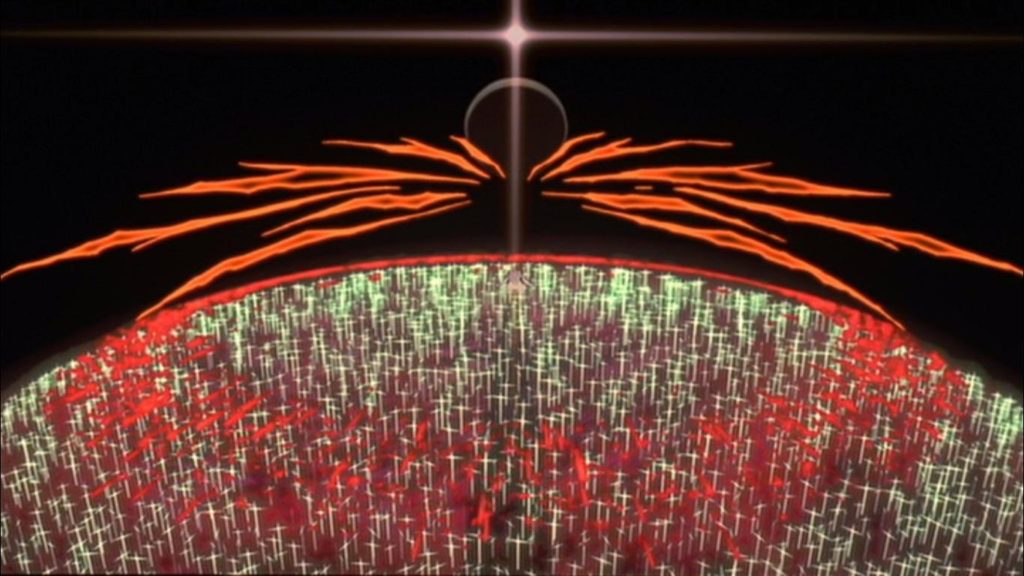
Shinji Ikari, voiced by Megumi Ogata (Yu Yu Hakusho: Fight for the Netherworld & Sailor Moon S: The Movie – Hearts in Ice), is our Hero. He stands opposed to these forces – but, as you will see, he doesn’t actually do very much.
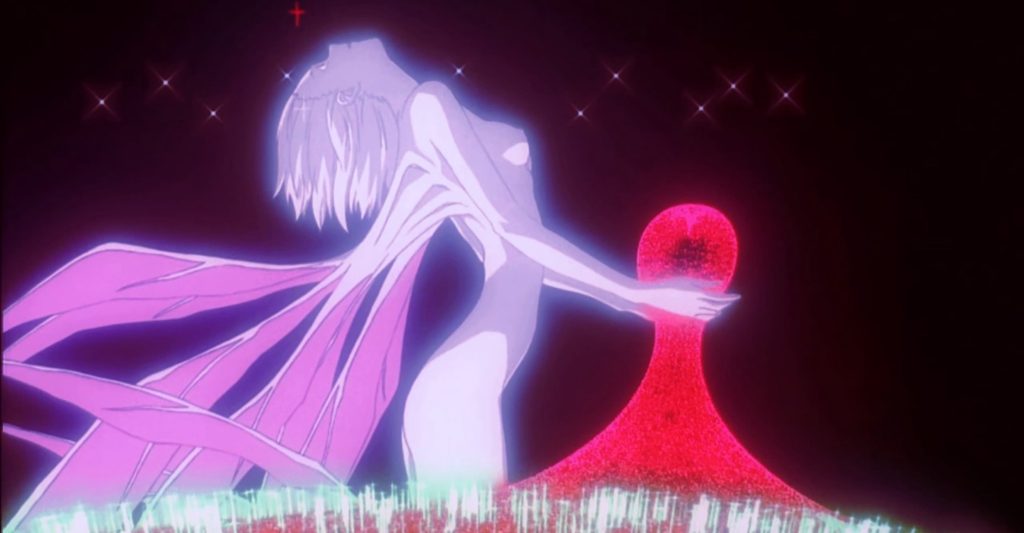
The Human Instrumentality Project
The basic idea here, now stay with me, is to merge all humans into a single entity. This is the next stage of human evolution that the evil forces are attempting to bring about. So yeah, it gets very very trippy.
There are some incredible visuals but it all loses its power because of the lack of some big narrative pieces that we will delve into now.
Essential Story Pieces
When you look at a great story there are five key elements. Two of those five are missing in this film. The first is The Price. This is the cost that the Hero pays to achieve their goal. Shinji pays nothing to achieve success. Sure he goes through a lot of teenage angst and self-loathing. But this isn’t even close to being enough.
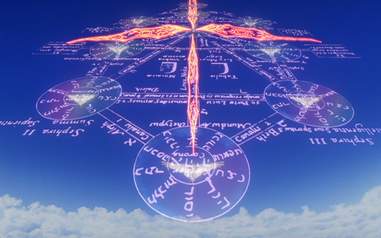
He questions whether he deserves his prize – but this isn’t the same as paying something for it. You know those films you see and you just feel that it was too easy for the hero – this is one of those.
The second piece of the big five elements that is missing is Care. More correctly: Why should we care? Without this aspect you are not invested in the story. You need to care about the hero’s struggle – if you don’t, why would you want to watch it? This film’s answer to this question is best summed up in this statement: We all want to feel valued but probably wouldn’t join with all humanity and lose self to achieve it.
Yep, I was confused as well.
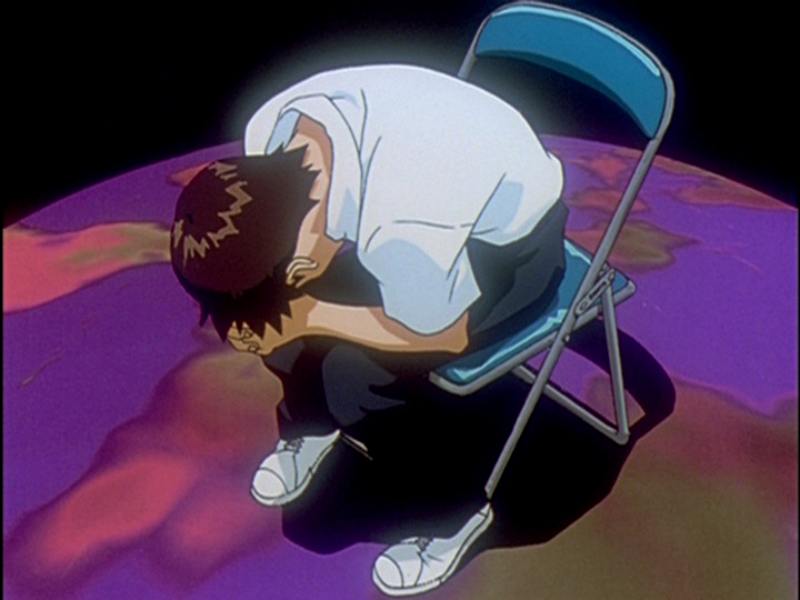
Shinji Is Great At Doing Nothing
Ok, so three out of five isn’t bad I hear you say. Let’s flesh out the main twelve story elements and see how they do here.
There is only a single step of the Hero’s Journey that requires for the hero to do nothing. It’s aptly called – The Refusal of the Call to Adventure. After being faced with the adventure ahead of them the hero hesitates on the threshold. They question whether they should go on the adventure or not. Shinji nails this – He questions his right to succeed at all.
Throughout the majority of the film Shinji is a bystander he has no agency and just watches things happen. Even at the most important part of the film where the hero decides to go on the adventure he just stands by as his EVA – battle mech – takes control of itself and does what needs to be done.
Throughout stages six to ten of the Hero’s Journey Shinji is a bystander. Only right at the end where it is Shinji who has to be the one to decide to merge all humans or not, does he do something. You are almost caught wondering – who is this guy. Not a great feeling for your lead in almost the final scene.
Is It Better Than The Original Ending
This is really hard to answer. The best way to explain it is to address what I have touched on already. Internal versus external. The TV show deals with this decision entirely internally. In Shinji’s mind. We don’t even know what is really happening in the outside world apart from a single glimpse of everyone dead.
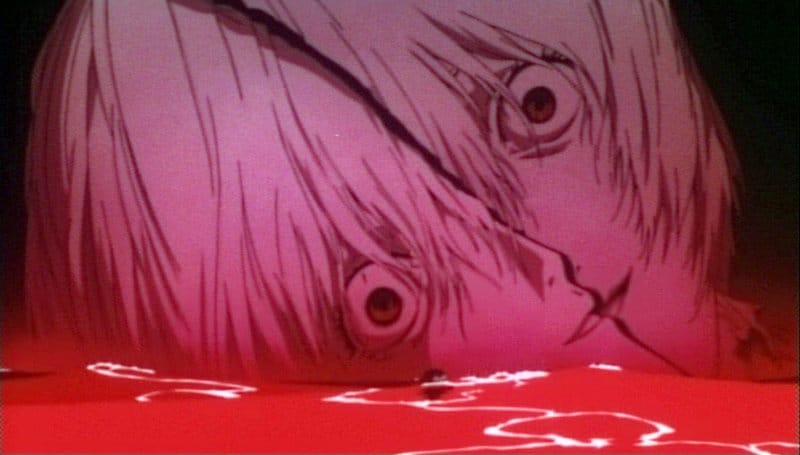
The film shows us everything, from some fantastic fight scenes to an epic battle-mech ritual to bring on the Human Instrumentality Project. The film feels like we are just watching an explanation of events. It’s like a documentary of the end of the world. Which would be fine if it wasn’t trying to parade itself as a story.
So, both are terrible, but the film is worse because at least with the TV show we have some great story telling techniques used and Shinji and the other characters have tons of agency.





